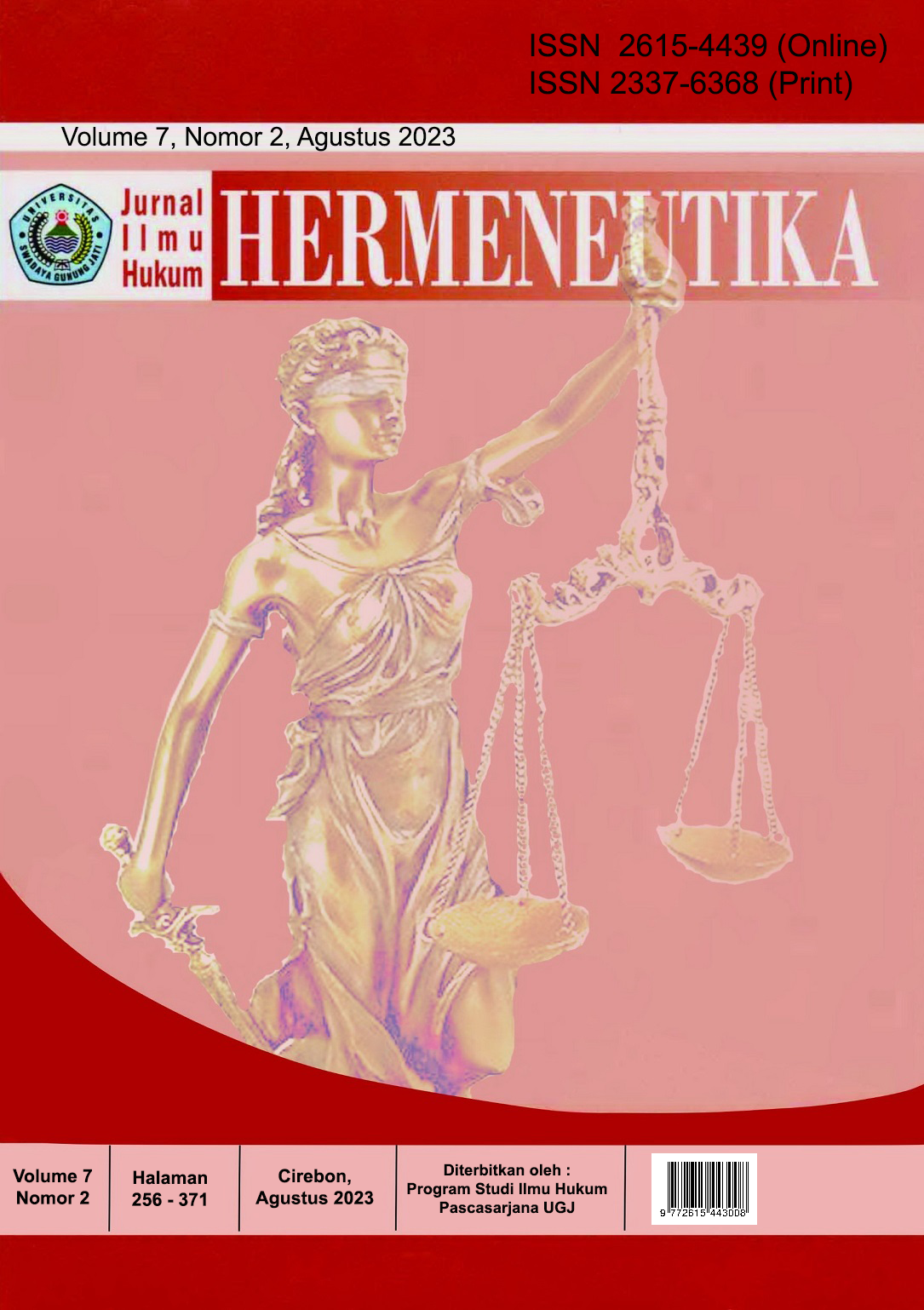JURIDICAL REVIEW LIMITS FOR THE USE OF CREATIONS BY OPPORS ASSOCIATED WITH THE ROYALTY COLLECTION SYSTEM IN INDONESIA
DOI:
https://doi.org/10.33603/hermeneutika.v7i2.8738Keywords:
Copyright, Creator, RoyaltyAbstract
The development of the digital world has affected intellectual property rights, one of which is song or music copyright. Songs created by a songwriter or sung by a singer aim to convey a message and express what the songwriter or singer feels and sees. Songs are objects that are protected by law so they cannot be used carelessly, permission is needed to use songs that are the work of other people or parties. In Law Number 28 of 2014 concerning Copyright, it regulates how the licensing process goes so that the song can be sung by other than the creator. The research method used is normative juridical research, namely research that is oriented based on the main legal material by examining theories, concepts, legal principles, legal systematics, level of legal synchronization, legal history, comparative law, and statutory regulations. invitation related to this research. The creator of the song is the copyright holder. The songwriter may use a creation as long as there is a license permit, which in the agreement is what is called royalties. In Law Number 28 of 2014 concerning Copyright it is explained that royalties are compensation for the utilization of economic rights. In each use, there are economic rights that are the rights of the creator, copyright holder, or owner of related rights. In collecting royalties, it can be delegated to an institution in the form of a legal entity, called LMK. The aim of the research was to find out the relationship between the use of works by creators and the royalty collection system in Indonesia.
References
Edward James Sinaga, “Pengelolaan Royalti atas Pengumuman Karya Cipta Lagu dan/atau Musik” Jurnal Ilmiah Kebijakan Hukum Vol. 14, No. 3, hlm. 556 (2020).
Gatot Supramono. 2010. Hak Cipta dan Aspek-Aspek Hukumnya, Jakarta: PT. Rineka Cipta.
Hendra Tanu Atmadja. 2004. Hak Cipta Musik atau Lagu, Jakarta: Hatta Internasional.
Sudjana, “Eksistensi dan Kewenangan Lembaga Manajemen Kolektif (LMK) dalam Perspektif Hukum Indonesia”, Jurnal Hukum Sasana, Vol. 6, No. 1, hlm . 1 (2020)
Sulthon Miladiyanto, “Royalti Lagu/Musik untuk Kepentingan Komersial Dalam Upaya Perlindungan Hak Cipta Lagu/Musik”, Jurnal Synta 3 idea, Vol. 13, No. 2 (2019).
Peraturan Perundang – Undang
Undang-Undang Dasar 1945
Undang-Undang Hak Cipta nomor 24 tahun 2014
Peraturan Pemerintah nomor 56 tahun 2021
Downloads
Published
Issue
Section
Citation Check
License
The Authors submitting a manuscript do so on the understanding that if accepted for publication, copyright of the article shall be assigned to Jurnal HERMENUTIKA, Sekolah Pascasarjana Ilmu Hukum. Universitas Swadaya Gunung Jati as publisher of the journal. Copyright encompasses rights to reproduce and deliver the article in all form and media, including reprints, photographs, microfilms, and any other similar reproductions, as well as translations.
Jurnal HERMENEUTIKA, Universitas Swadaya Gunung Jati and the Editors make every effort to ensure that no wrong or misleading data, opinions or statements be published in the journal. In any way, the contents of the articles and advertisements published in Jurnal HERMENEUTIKA are the sole responsibility of their respective authors and advertisers.










